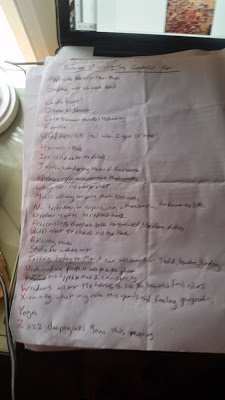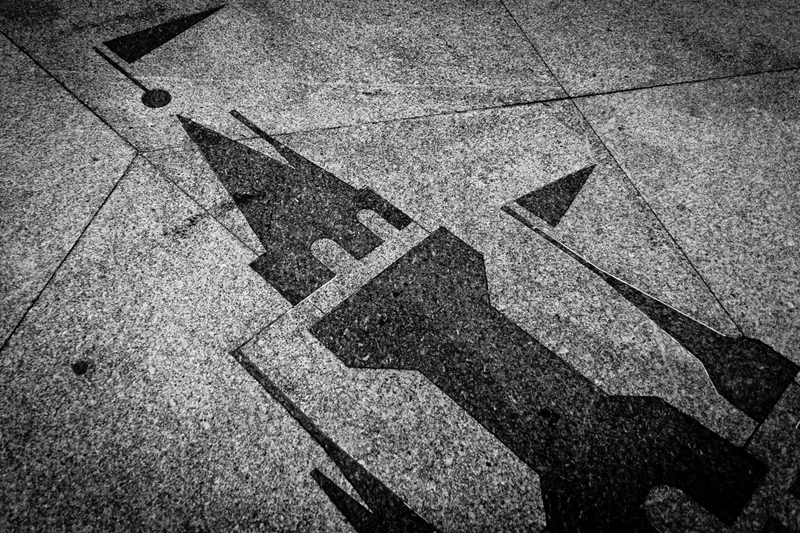Shopping lists, to-do lists, packing lists — lists are an easy way for busy people to retain information. Of all places, I found myself making the most lists in the hospital. And of all kinds of lists (after a surgery that went terribly wrong) I found myself creating a gratitude list.

I’d make myself think of something I was grateful for from A to Z, even when I hated my circumstances. By rummaging through my angry and frustrated thoughts, eventually, some positivity submerged. By the time I reached “Z,” my life had not changed dramatically, but my thoughts had.
Finding Gratitude and Starting Your Story
You don’t need a set of fancy paints to create art, you don’t need a picture-perfect life to find every day gratitude, and you certainly don’t need a fancy hardcover journal to start a grateful list. Take a blank page, letter it A to Z from beginning to end, and just start. It doesn’t have to make sense. Some words can be a bit of a stretch. It’s even okay to get away with “x-citement” or “quanberry juice.” It’s just to get your head in a different place.
And sometimes, when your head’s in a different place …
Your body will be too.
Where’s the most outlandish place you can find gratitude today?
In the hospital, I made daily gratitude lists when there wasn’t much to immediately be grateful for. But finding gratitude was a way to make “sense” of my story. If I were grateful for things happening, they could fit into my life. I could own what happened to me and make something from it. These grateful lists were my life story spelled out night after night.
The Power of Our Stories
This taught me a valuable lesson: Stories make us stronger. Stories make us think differently. And there is strength in thinking, seeing and doing things differently.
Everyone loves a good story. Is there a book or poem you’ve read that has always stuck with you? A certain metaphor from a whimsical children’s story that resonated with you as a child? I remember always loving the book Harold and the Purple Crayon. I loved the idea of a little child being able to create his world. It made me feel like I could too.
That’s the beauty of a metaphor: Through a larger vision, we can relate with our unique stories.
That is also the power of storytelling. Everyone’s story is different. But we all can relate to emotions. If you’re human, you’ve felt sadness. You’ve felt hunger, pain, joy, loss. If you’re a human on this earth, you’ve felt life. Look all around you, and you’ll see life growing, dying, changing, and regenerating daily.
And THAT is something we can all be grateful for, right? Even though we’re dealing with difficult times, we are not alone. We have never been.
Finding Your Story
As I contemplate the next steps I wish to take in my personal journey, my own beautifully messy detour, I find myself wondering how to best share my story so it can help others.
Then I think about some of my favorite movies: Disney movies — I’m not a lion or king, I don’t live under the sea, transport myself in a magic pumpkin, or have 101 dalmatians.
But I’ve felt betrayal. (The Lion King)
I’ve looked for hope in the oddest of places. (The Little Mermaid)
I’ve lost hope. (The Beast.)
I’ve been so angry I haven’t even known what to do with myself. (Every Disney villain …)
I’ve felt love when I thought I couldn’t feel at all. (Lady & The Tramp)
I’ve felt fear. (Belle)
I’ve felt bravery. (Alice In Wonderland)
I’ve felt life. (Snow White)
I don’t have a story you hear every day. I thought I had my life all figured out until an unexpected blood clot interrupted my “life plans.”
For awhile, my story was a tale I couldn’t understand, like the sick plot of a psychological thriller. Then, one day I opened up a journal, and I began to write.
Through the power of words, I was able to understand my own story and share it. My story became part of me, rather than something I continued to run from. Now, I use my story to bring out the stories that unite us all.
I can’t really compare my life to a Disney movie, but I can say this: We all have ebbs and flows in our lives — our peaks and valleys. My story, your story, our stories — they’re all the same.
The specifics are not the importance in the end. What’s important is that we keep telling them.
Just hearing someone else’s story makes us feel the same pain or joy that they have experienced. It’s sharing the stories that make us stronger.
That’s how we know we’re not alone.
You have a story too.
Our stories make us stronger. So today — tell yours.
